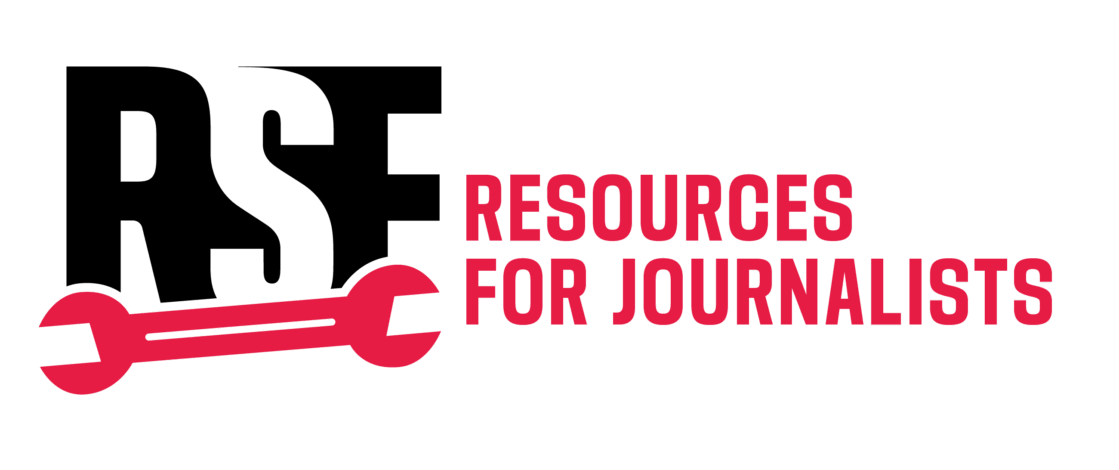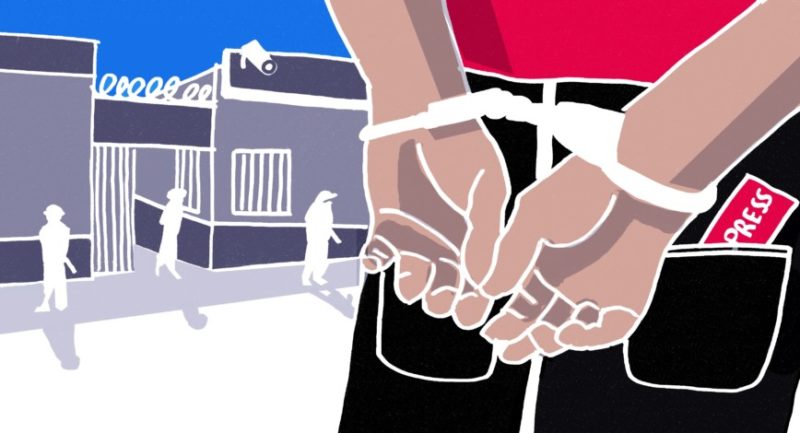Authoritarian regimes are unfriendly environments for journalists to work in. In this second article of a two-part series, Reporters Without Borders (RSF) works with media law expert, Josephine K., to give advice to journalists and newsrooms on how to better protect themselves against authoritarian hurdles.
Authoritarian regimes remain in power partially by controlling information. Journalists, who seek to uncover and distribute information, may find themselves the victim of unexpected restrictions enforced by local authorities on what they can do and say, and where they can go. It is critical that journalists be aware of the risks faced, and adopt personal reflexes to better protect themselves. Newsrooms, for their part, should train their correspondents on what they can expect to encounter, how best to respond, and provide support in case a journalist’s work is disrupted by the authorities. In this second article of a two-part series, Reporters Without Borders (RSF) works with media law expert, Josephine K., to give advice to journalists and newsrooms on how to provide a better response to authoritarian hurdles.
Recommendations to journalists
- Digital hygiene. Journalists should by default use tools that have the highest level of anonymisation and encryption features, such as encrypted emails services (Tutanota, Protonmail) and social media apps (Signal, Element). Anonymisation is also key to protect not only themselves but also their sources, especially in countries where private data laws are not strong, and it is therefore recommended to use burner phones. Journalists should always have a VPN on, use strong passwords, and turn on two-factor authentication (2FA) when possible.
- Precautionary measures. In case of an arrest, journalists should memorise a lawyer’s phone number. It is encouraged to exercise extreme caution before taking possession of any materials from sources that may amount to “state secrets,” and when in doubt, to seek the advice of management and/or legal counsel. Journalists may prefer to write for outlets outside of the country where there is a potential for the subject matter to be deemed “sensitive.” To assess it, journalists can check social media regularly for comments on published articles which may endorse “contentious” views.
- Mitigate editorial risks. For each article, journalists can display their neutrality by quoting both sides, i.e. include quotes from an interviewee with dissenting views, as well as government officials’ statements) and try to assess the risks of a topic to make “editorially sensible” decisions. In order not to self-censor either, journalists can emphasise that any statements that could be deemed “contentious” are quotes and not the opinion of the publication.
- Cooperate with police, but passively if possible. Journalists will most probably be required to prove their identities, leave areas on request, hand over their devices for inspection, and follow the instructions of even plainclothes officials. Proactively assisting the police is not a journalist’s duty, however due to the risks to their own physical safety inherent in resisting or not complying with police orders, cooperation with law enforcement agencies is strongly recommended.
Recommendations to newsrooms
- Newsrooms should document any state interference their correspondents experience, either with laws, or with overly-broad police powers. It is critical that the tactics used by authoritarian regimes are known to journalists before entering these environments, so they can prepare and keep themselves safe.
- Newsrooms should regularly update on changing state tactics should be provided to journalists, as well as extensive training on local laws, police powers and practice, and how to respond to authority figures. Training should be led by an in-house legal team if available, or local legal professionals, media experts, or experienced NGOs.
- Newsrooms should provide digital security training to all journalists working within an authoritarian regime. They should push their staff to only carry professional devices on them while reporting and regularly check with them that they use encrypted tools for their communication and protecting software for their professional devices.
- Newsrooms should provide an emergency contact sheet for all journalists. Newsrooms should prepare a list of all emergency contacts of all staff. The list should include every individual the journalist wishes to be alerted in the event of detention. This might include partners or spouses, extended family, domestic workers where staff engage them.
- Newsrooms should rotate their staff covering “sensitive” topics. As a precautionary measure, newsrooms should always rotate their staff covering sensitive and lengthy stories, such as reporting from the courts, to ensure that a single staff member isn’t too easily recognisable, which may expose them to harassment or threats.
- Newsrooms should pay special attention to the safety of local correspondents and contacts. Anonymity may be extremely important in cases where the content of an article may be seen as critical of the regime. Punishments for such criticism can be extreme and even extend to the local correspondent’s family.
← Read Part 1: Legal hurdles.
Josephine K. is a pseudonym as the author wishes to remain anonymous for safety reasons.



